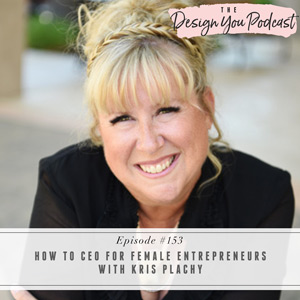
So many of us who are running our own businesses are visionaries, creatives, and we’re good at our craft. But dialing into being the CEO and the whole running and leading a business thing is on a whole other level. It often feels easier to do things ourselves because the process of bringing someone else on can feel too overwhelming, but today’s guest is here to help you overcome that obstacle and become a better CEO.
Kris Plachy is the ultimate Thought Leader and Expert for Entrepreneurial Management. She has been studying coaching for most of her adult life and has been coaching female entrepreneurs to become better CEOs for almost 10 years. She joins me this week to share some ways female entrepreneurs can become outstanding leaders in their businesses.
Tune in this week and discover why Kris thinks the world needs more female CEOs and what makes a great leader. We discuss the importance of laying solid foundations in your business, and how being strategic with your time, establishing a vision, and setting expectations can help you run a more effective business. Get out your notepad friends, there is a lot of gold in this episode!
If you want help creating a business with thriving revenue streams so that you can design the life you really want this year, now is your chance! We’re going to be opening the doors to the Design You Coaching Program really soon, get on our waitlist now!












